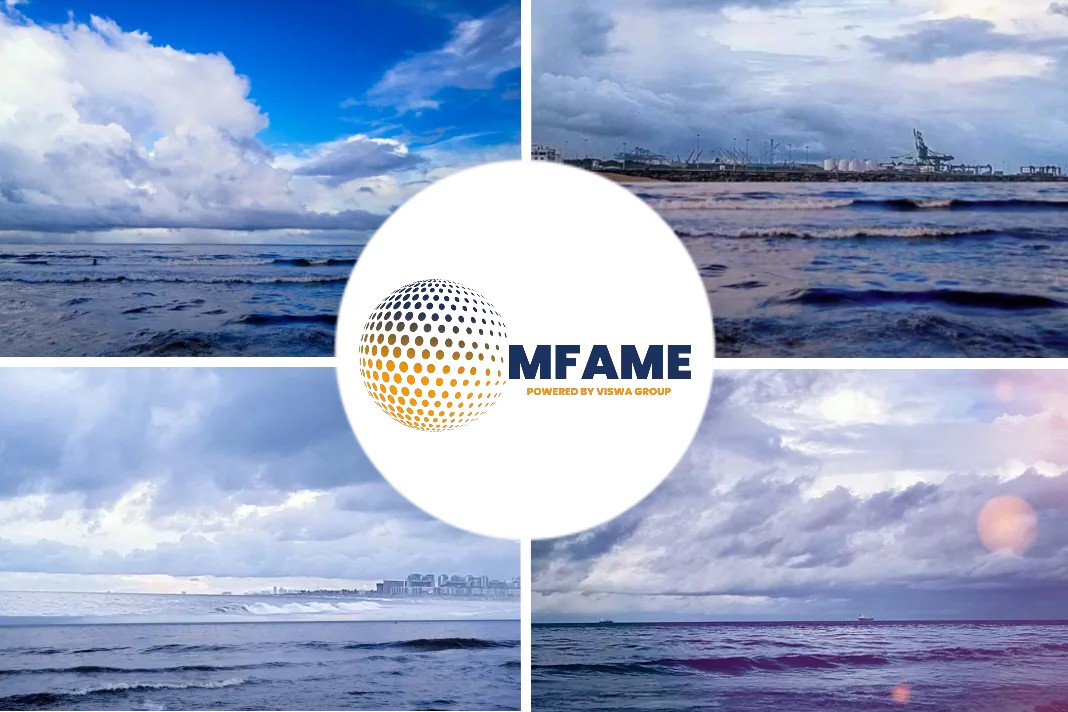- IUMI calls for amendments to SOLAS Chapter 11-2 regulations.
- Enhanced provisions for early fire detection and effective control of fires in containerised cargo stowed under and on deck are the amendments called for.
- The size of the modern ultra-large ships and the complexities of fighting a fire aboard these vessels, the current SOLAS regulations remain inadequate.
- Between 2000 and 2015, there were 56 reported container fires in vessels, resulting in damage to over 8,000 teu and a total loss to insurers of over $1trn.
- Hull damage from 2000 to 2019 has led to claims of some $189m.
- American Bureau of Shipping (ABS), published a guide that goes beyond the current SOLAS regulations.
- Promoting the good practice cargo integrity message of the IMO-agreed CTU (cargo transport units) Code.
International Union of Marine Insurance (IUMI) claims that SOLAS containership fire regulations are ‘inadequate’, writes Mike Wackett for an article published in The LoadStar.
Paper submitted to IMO’s Maritime Safety Committee
IUMI calls for amendments to SOLAS Chapter 11-2 regulations. The amendments called are to –
- enhance provisions for early fire detection and
- effective control of fires in containerised cargo stowed under and on deck.
This was submitted to the IMO’s Maritime Safety Committee by IUMI and its co-sponsors, including the German Flag State and BIMCO, on 10 February.
Regulations inadequate
IUMI said that considering the size of the modern ultra-large ships and the complexities of fighting a fire aboard these vessels, the current SOLAS regulations remain inadequate.
Danger to crew and environment
It warned that the growth, and larger average size, of container vessels would “inevitably lead to a further danger to crew and the environment and increased costs of damage to cargo and vessels in the event of a fire”.
Container fires in vessels reported :
- IUMI noted that between 2000 and 2015, there were 56 reported container fires in vessels, with damage to over 8,000 teu and a total loss to insurers of over $1trn.
- Recent data covering hull damage from 2000 to 2019 has led to claims of some $189m.
Will the proposal be endorsed?
IUMI has called on IMO member states to endorse its proposal at the Maritime Safety Committee meeting in May.
Classification society the American Bureau of Shipping (ABS), published a guide, aimed at
- designers,
- builders,
- owners and
- operators
addressing safety issues in the wake of a number of high-profile fires on containerships, entitled Guide for Fire-fighting Systems for Cargo Areas of Container Carriers.
It said the development of the guide reflected “the fact that container vessels have grown ever larger in recent years and the volume – and nature – of the cargo they carry has expanded significantly”.
Guide beyond SOLAS regulations
The guide goes beyond the current SOLAS regulations. It seeks to address
- early fire detection,
- more efficient fire suppression,
- better protection of crew and
- the safety considerations associated with cargo hold flooding as a means of fire-fighting.
Quest to educate shippers
Supply chain insurer TT Club continues its quest to educate shippers and other supply chain stakeholders on cargo integrity in an endeavour to prevent container fires from happening.
First fire of the year
- The first boxship fire of the year, on board the 10,062 teu Cosco Pacific on 4 January.
- The fire originated in a container loaded with lithium batteries.
- The declaration was falsely stated as spare parts, evidencing how much work still needs to be done to mitigate risk in the industry.
Promote the good practice cargo integrity
Speaking to Hazardous Cargo Bulletin, TT Club risk management director Peregrine Storrs-Fox outlined some of the initiatives that the insurer had taken in collaboration with others to promote the good practice cargo integrity message of the IMO-agreed CTU (cargo transport units) Code.
Mr Storrs-Fox said that they look forward to promoting the CTU Code and help people to learn how to comply with the elements that are appropriate to the commodity or packing that they are undertaking in order to give a good outcome to the supply chain.
Did you subscribe to our daily newsletter?
It’s Free! Click here to Subscribe!
Source: The LoadStar























